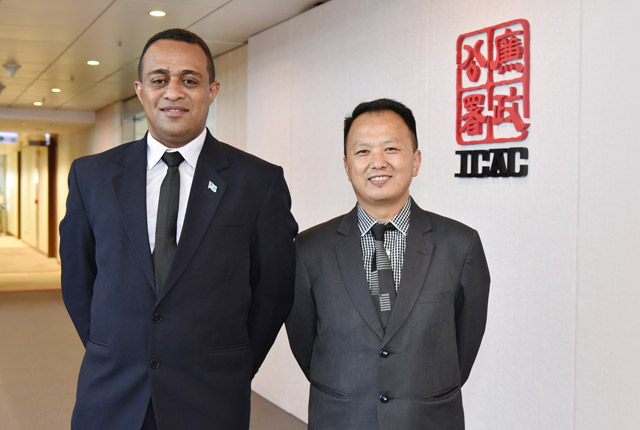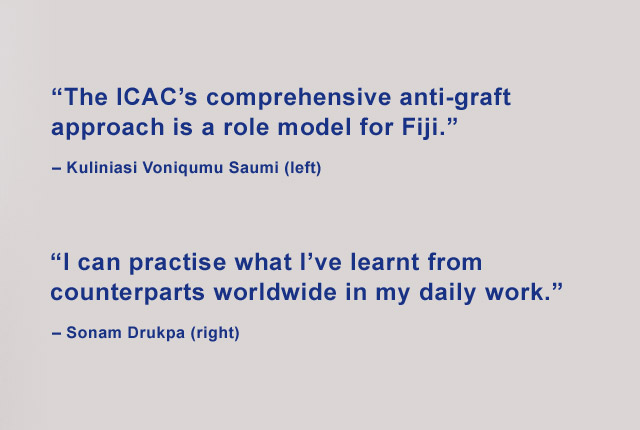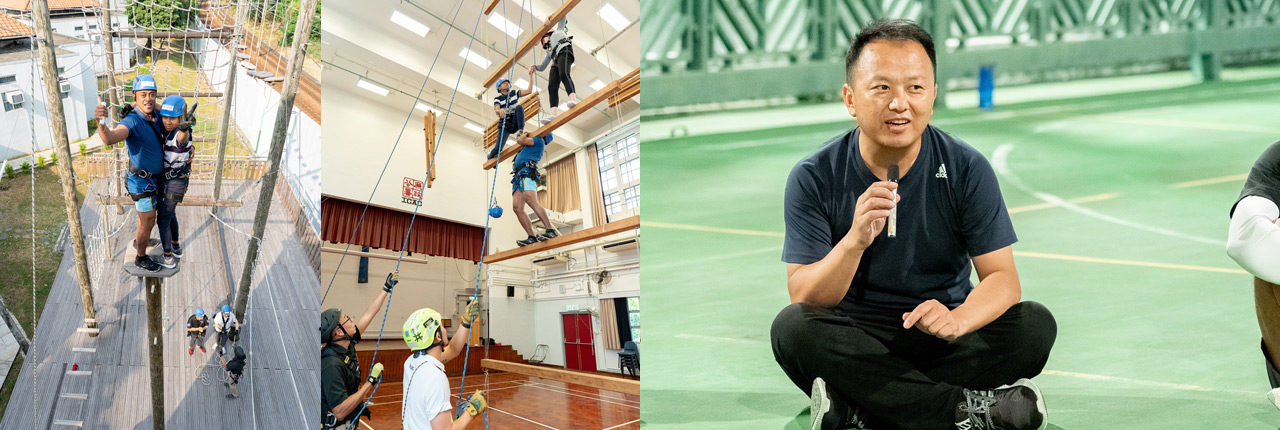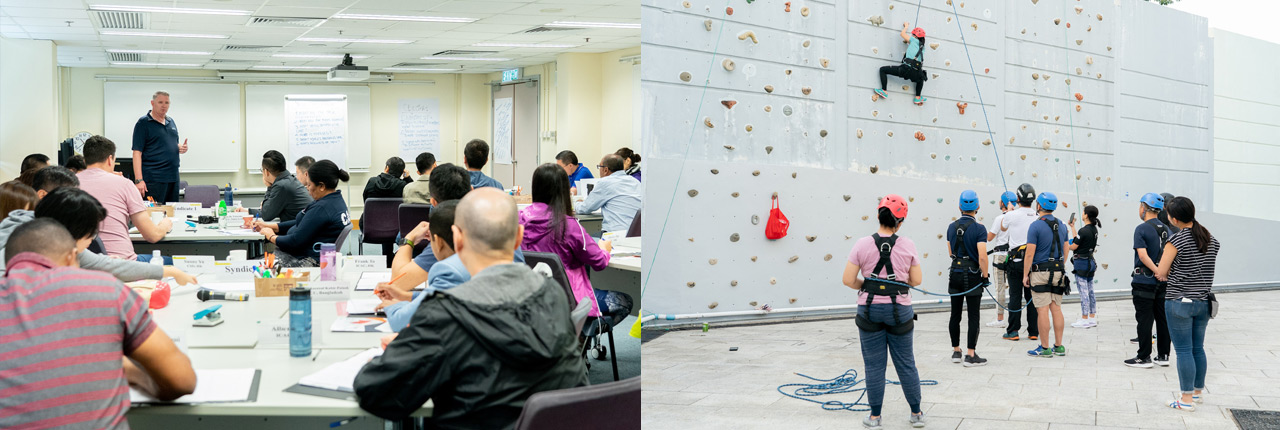

In early November 2019, Kuliniasi Voniqumu Saumi landed in Chap Lap Kok after an 11-hour flight from his Southern-Pacific home town in Fiji 8,200 kilometres away. The seasoned graft buster was all set for his four-week anti-corruption journey in Hong Kong.
Saumi, who joined the Fiji Independent Commission Against Corruption since its inception in 2007, was among the 25 participants of the Hong Kong ICAC’s Chief Investigators’ Command Course (CICC) No.39 which took place from November 4 – 29, 2019.
“This four-week course does not confine to anti-corruption. It gives me a unique opportunity to sharpen my management and leadership skills,” Saumi told the ICAC Post.
The CICC, which has coached over 800 local and overseas participants since the late 1970s, has become the Hong Kong ICAC’s flagship training programme under its initiatives in enhancing international anti-graft cooperation. It is specially designed to better equip newly promoted Chief Investigators and middle managers, who usually are the first line commanders in the law enforcement community, with the strategic insight required for future management and leadership roles.
This year’s CICC, themed “Leadership in the Ever-changing Era”, attracted officers from 16 local, Mainland, Macao and overseas law enforcement agencies.
Twenty distinguished speakers from the legal profession, law enforcement agencies, business enterprises, public service and academia inspired this years’ CICC participants with new perspectives and shared empirical insights into management and leadership.
“I find their sharing very impressive and interesting. Their experience has inspired us to become true leaders and also geared us up so that we can help others along the same journey,” Saumi said.
“The ICAC’s comprehensive approach combining vigorous enforcement and business ethics promotion is a role model for Fiji,” Saumi added.

Saumi also appreciated the opportunity to get to know graft-fighters and law enforcers from around the world during the course, as the network he had established would be useful in intelligence exchange and mutual assistance when he returned to his workplace.
Echoing Saumi’s views, Sonam Drukpa, another CICC participant from the Anti-Corruption Commission of Bhutan, told the ICAC Post that he was hoping to practise what he learnt from counterparts worldwide in his daily work.
“Comparing to Hong Kong ICAC, Bhutan’s anti-corruption regime is still at its infant stage. I appreciate very much the effort and resources that Hong Kong has devoted to in its time-honoured three-pronged anti-graft approach,” Sonam said.
Elaborating on the concept of the CICC, ICAC Deputy Commissioner and Head of Operations Mr Ricky Yau Shu-chun said corruption and other organised crimes were becoming increasingly sophisticated and cross-jurisdictional amidst globalisation and technological advances. Law enforcement officers around the world would need closer collaboration to maintain their effectiveness in tackling the challenges ahead.
“We are all living and working in an increasingly fast-paced and ever-changing world. To succeed and excel in a dynamic and challenging environment, it is imperative for leaders to consider and approach their roles differently than they have in the past, and lead their teams through changes,” Mr Yau noted.
In addition to guest speakers’ presentations, case studies of major ICAC investigations and the ICAC’s three-pronged approach in fighting corruption were also shared by senior ICAC officers. The CICC participants also visited various public and private organizations in Hong Kong.
The course also featured professional outdoor development training and management workshops, as well as a one-week comparative study tour to various authorities in Changsha, Hunan Province, incorporating specific project work and presentations.
